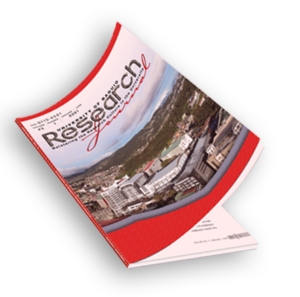
Constructivist teaching practices and educational technology use among educators of the University of Baguio
ABSTRACT
Constructivist teaching practices and educational technology use has been noted to be positively correlated. The study investigated this and the effect of teaching experience, highest educational attainment, knowledge of availability of ed-tech, and extent of use of ed-tech unto the extent of practice of constructivist teaching methods from 95 educators in the University of Baguio. Results indicated that most of the respondents use constructivist teaching methods with cooperative learning as the most used teaching pedagogy and peer tutoring the least. Extent of practice of the
different constructivist teaching methods was not affected by the respondents’ teaching experience and knowledge of availability of ed-tech. However, statistically significant correlations were seen between the respondents’ extent of use of ed-tech and their extent of practice of the different constructivist teaching methods. There were no significant differences seen on the respondents’ extent of practice of project-based learning, inquiry based learning, guided instruction and peer tutoring considering the respondents’ highest educational attainment. Significant differences were, however, noted for cooperative learning. Among the reasons cited by the respondents for using constructivist teaching methods included their desire for student development, better learning and for student motivation and class participation. The respondents noted physical factors, student factors, factors inherent to the method, and teacher factors as the most common challenges they face in implementing constructivist teaching methods.
Authors
Dr. Victor V. Hafalla Jr.,REE1 and Engr. Michelle W. Millora1
1 Faculty, School of Engineering and Architecture
University of Baguio, Baguio City, Philippine
ORCID ID: https://orcid.org/0000-0002-8806-982
Email: [email protected]/@gmail.com
Keywords
constructivist teaching, educational technology, correlation, cooperative learning, analysis of variance
Issue
University of Baguio Research Journal
Vol. 44, No. 2 | July – December 2020
Published
- January 12, 2022
ISSN Information
(online) ISSN 2945-3321
This work is licensed under
CC BY-NC-ND 4.0

In this issue
Contact Us
- [email protected]
- [email protected]
- (074) 442-3036
- 77 General Luna Road, Baguio City Philippines 2600
